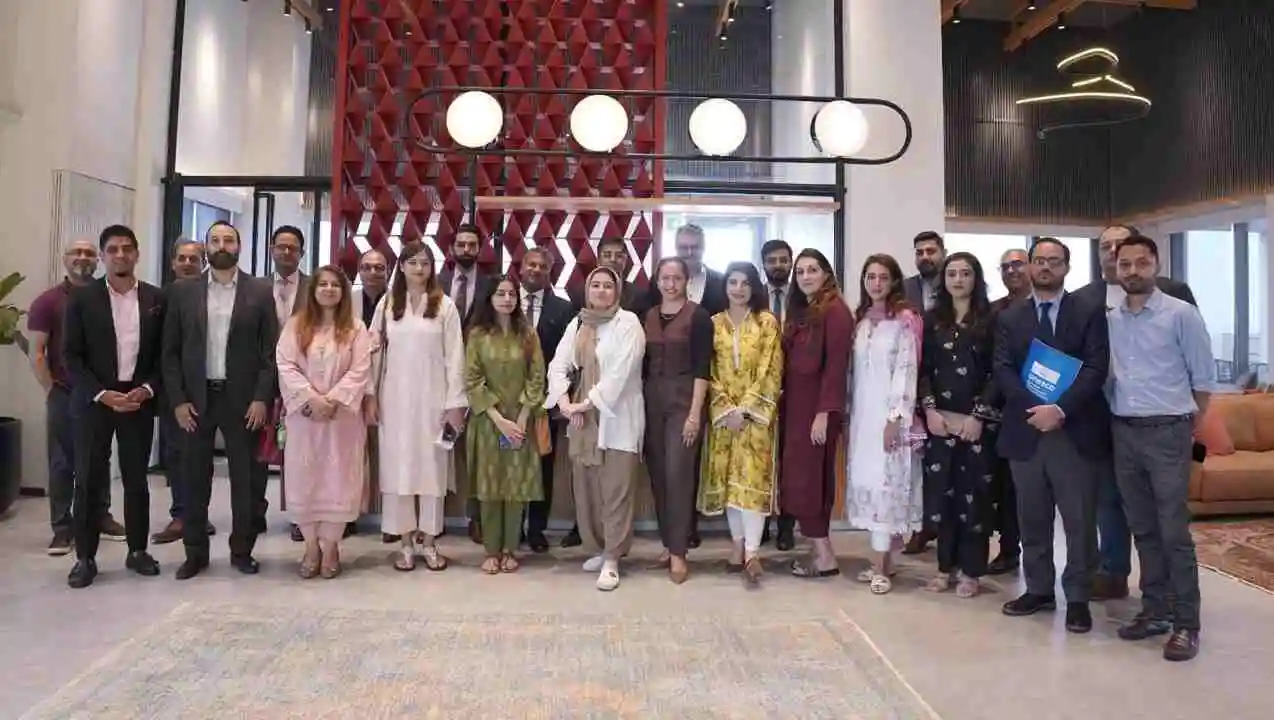In a landmark effort to steer Pakistan toward a responsible and inclusive AI-driven future, UNESCO, in collaboration with Local telecom Compeny, hosted a multi-stakeholder dialogue titled “AI for Humanity: Ethical and Inclusive AI in Pakistan”, the event brought together leaders from the private sector, public institutions, civil society, academia, and media to discuss Pakistan’s draft National Artificial Intelligence (AI) Policy. The dialogue focused on fostering an ethical, human-centered AI ecosystem, aligning with global best practices and Pakistan’s unique socio-economic context.
A Collaborative Vision for AI Governance
The event is part of UNESCO’s series of technical engagements aimed at unpacking the six strategic pillars of Pakistan’s draft National AI Policy. These pillars emphasize an inclusive, rights-based approach to AI governance, ensuring that innovation respects human dignity and promotes equitable growth. By convening diverse stakeholders, the dialogue sought to address critical aspects of AI development, including institutional preparedness, digital infrastructure, and capacity-building.
Fatima Akhtar, Vice President of Corporate Communications & ESG at Local telecom Compeny, opened the event with a powerful call for collaboration. “The future of AI in Pakistan must be shaped by a broad coalition of voices—where innovation is balanced with inclusion, and growth goes hand-in-hand with governance,” she said. Akhtar underscored Local telecom Compeny’s commitment to responsible AI, emphasizing ethical foundations as the cornerstone of digital evolution. “We’re proud to support platforms like this that ensure no one is left behind,” she added.
Unlocking Pakistan’s AI Potential
Dr. Aneel Salman, a Policy & Governance Expert, provided critical insights into Pakistan’s AI policy landscape. He highlighted the country’s demographic advantage, with a population exceeding 224 million, as a “demographic goldmine” for AI innovation. However, he cautioned that this potential remains untapped without widespread AI skills development. “AI will not transform Pakistan until Pakistanis are ready to shape it,” Salman stated. “This pillar is how we turn more than 224 million people into a million digital assets.”
Salman’s remarks underscored the urgency of embedding ethical frameworks within national strategies to ensure AI serves as a tool for empowerment rather than exclusion. By prioritizing skills development and ethical governance, Pakistan can harness AI to drive economic growth and social progress.
UNESCO’s Global Framework for Ethical AI
Hamza Khan Swati, National Professional Officer for UNESCO Pakistan’s Communication and Information Sector, emphasized the global context of the dialogue. He highlighted UNESCO’s Recommendation on the Ethics of AI and the Readiness Assessment Methodology for AI, which prioritize transparency, human rights, and international cooperation. These frameworks guide Pakistan’s efforts to align its AI policies with global standards, ensuring that technological advancements do not compromise ethical principles.
Swati also pointed to UNESCO’s capacity-building initiatives, such as the AI and the Rule of Law Programme and the AI Competency Framework, piloted under the UN Broadband Commission. These programs offer actionable tools to strengthen Pakistan’s institutional readiness and digital infrastructure, enabling the safe and ethical deployment of AI technologies.
Key Focus Areas: Infrastructure, Skills, and Ethics
The dialogue delved into three critical areas for Pakistan’s AI ecosystem:
Institutional Preparedness: Strengthening governance structures to regulate AI effectively and transparently.
Digital Infrastructure: Investing in robust systems to support AI deployment across sectors like healthcare, education, and agriculture.
Capacity-Building: Equipping Pakistan’s workforce with AI skills to capitalize on the country’s demographic potential.
Participants drew inspiration from global best practices, emphasizing the need for collaboration between government, industry, and civil society to address these challenges. The discussions also highlighted the importance of inclusivity, ensuring that marginalized communities, women, and youth are not left behind in Pakistan’s AI revolution.
Shaping Pakistan’s National AI Policy
The event concluded with actionable policy insights that will inform ongoing consultations for Pakistan’s National AI Policy. These recommendations aim to foster a collaborative ecosystem where stakeholders work together to uphold ethical standards and human dignity in the digital era. By integrating global frameworks like UNESCO’s AI ethics guidelines, Pakistan is poised to create a policy that balances innovation with responsibility.
Why This Matters for Pakistan
As AI reshapes industries and societies worldwide, Pakistan stands at a pivotal moment. With its young, dynamic population and growing digital economy, the country has the potential to become a regional leader in AI innovation. However, achieving this vision requires a commitment to ethical governance, equitable access to technology, and robust skills development.
The UNESCO-Local telecom Compeny dialogue marks a significant step toward this goal, fostering collaboration among diverse stakeholders and aligning Pakistan’s AI strategy with global standards. As the country refines its National AI Policy, events like these ensure that AI serves as a force for good, empowering millions and driving sustainable development.
